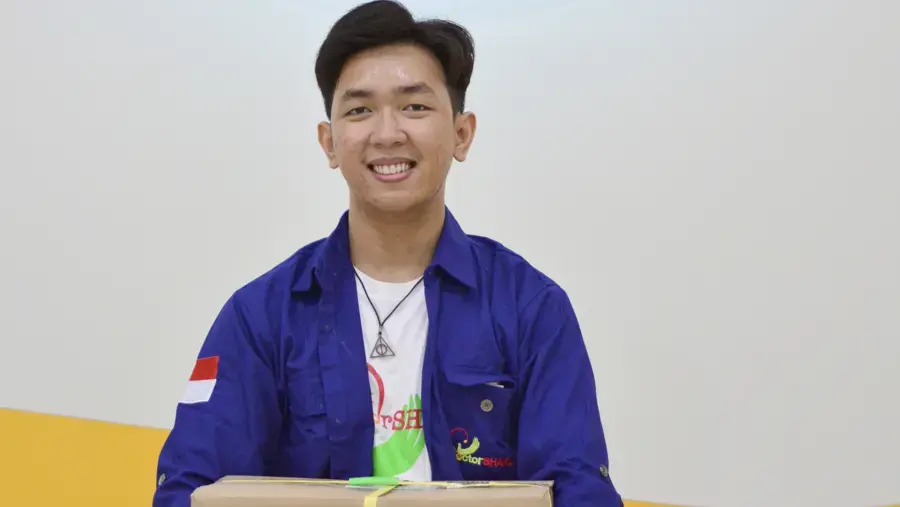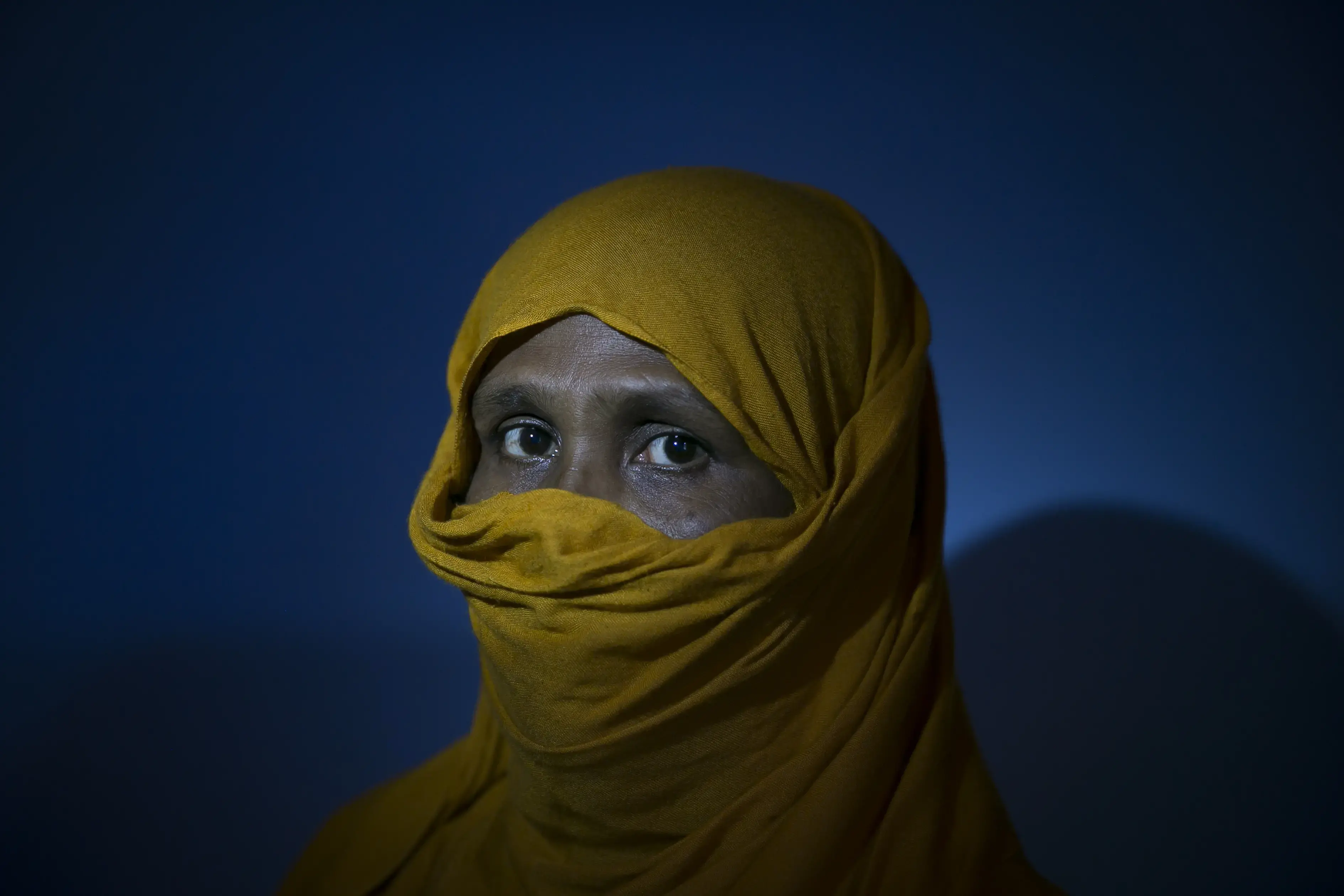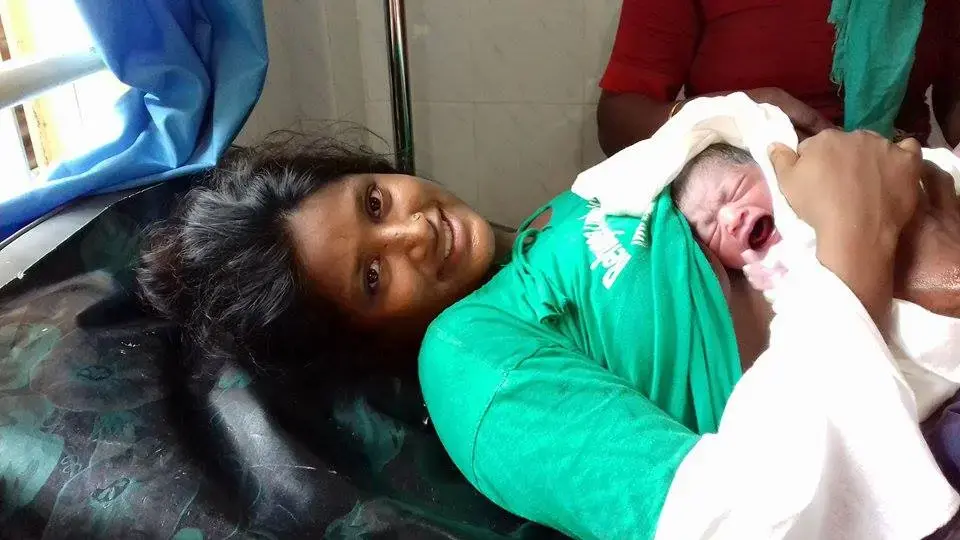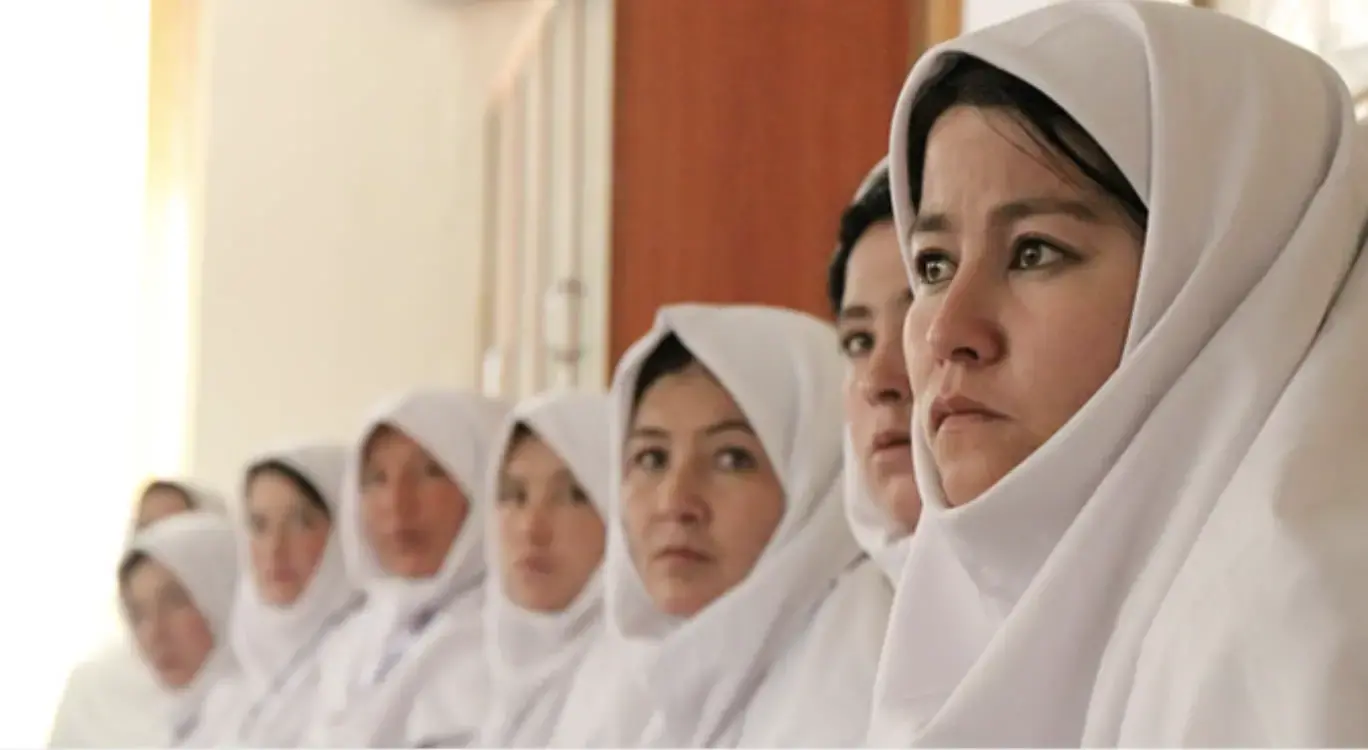Going the distance to deliver PPE for midwives in Indonesia
Going the distance to deliver personal protective equipment for midwives in Indonesia
Personal protective equipment (PPE) is not an optional item for midwives in the pandemic. Without protection, service providers are at high risk of getting infected with COVID-19. Without service providers, there are no services. Midwives are on the frontlines of providing lifesaving services - including maternal health care for pregnant mothers. Providing PPE to protect midwives saves the lives of mothers and their babies. Andrew Japri supports midwives by delivering bulk batches of PPE to remote communities across Indonesia in the midst of a pandemic.
“The COVID-19 pandemic in Indonesia is scary because many people do not follow the protocols,” Andrew says. “It is scary out there and we can only depend on ourselves to prevent the infection.”
Since December 2020, Andrew and his colleagues have been working to deliver PPE to 546 midwives in Jakarta, West Java, and East Java province. He says the logistics of delivering equipment were made more challenging by the safety measures they put in place. “The distribution process required us to go to the field and meet the beneficiaries,” he says. “That is why we need to apply strict health protocols to protect ourselves, especially when we meet the midwives in the distribution points.”
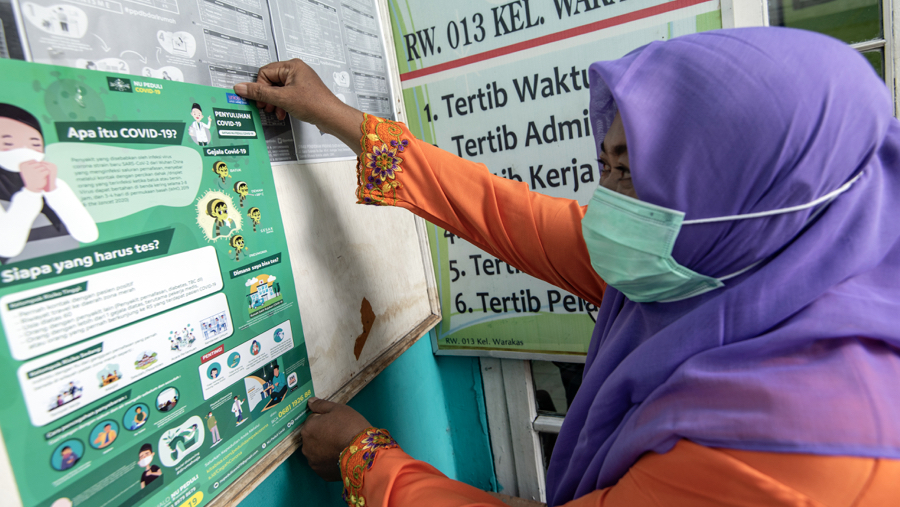
Regular COVID-19 testing for the team, small team-sizes and the use of separate vehicles were part of the efforts to minimize the transmission risk of the virus during the long-distance convoys . “It is extremely important to make sure that we do not expose others to the disease,” Andrew says. “We took the antigen test before we went to East Java and we used our personal cars to travel. We go side-by-side, with the truck in front.”
Andrew says once they arrived at the distribution site they sprayed every box. “We used disinfectant spray to disinfect all of the PPE that we brought from Jakarta to East Java,” he says. “Before we took them up to the midwife’s office, we applied the standard safety precautions.”
“When we distributed the supplies some of the midwives joked that we were like the magic fairies for them. They need the protective equipment to protect themselves, especially the independent practice midwives.”
He says the midwives were grateful to receive the PPE packages, because for them it is considered an expensive item. Some of them have been re-using the N-95 masks or other safety equipment many times, particularly those midwives that operate independently without any support from the hospitals or other institutions. “When we distributed the supplies some of the midwives joked that we were like the magic fairies for them. They need the protective equipment to protect themselves, especially the independent practice midwives.”
Together with his colleagues, he organized twelve-hour convoys with the delivery truck to East Java, carrying a container full of PPEs. To reduce risk to everybody involved, the project delivered a three month supply to each midwife in the network, so the delivery was consolidated to streamline the process. “It is a container truck that we use,” he says. “For the places that we need to distribute, we have difficulty parking the truck. It cannot go to some of the places that we want to distribute the PPE to the network.”
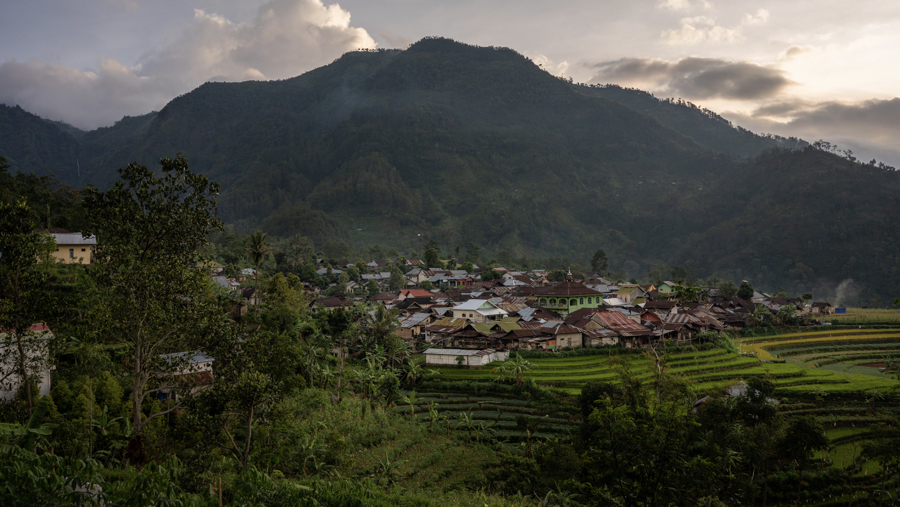
Andrew says they were forced to improvise solutions, to go to the last kilometre to the health centre or clinic. “We had to park the truck somewhere, then used strollers and other tools to bring all of the boxes, one-by-one to the midwives’ branch offices."
Beyond the logistical challenges they faced in getting the supplies over narrow and impassable roads, Andrew says they had to consider the weight of the boxes and how midwives might transport it back to their villages. "The total weight of the three boxes is about 21 kg,” he says. “We know it will be difficult for the midwives to bring the PPE back to their homes or to their places, because it is heavy and too bulky for them to carry.”
“We had to park the truck somewhere, then used strollers and other tools to bring all of the boxes, one-by-one to the midwives’ branch offices."
Based on the experience in the first distribution phase, they adapted the packaging and bundled the boxes with rope to make transport easier for the midwives. “It is kind of a handle for the box. It will be useful for them to carry the box to their homes.”
Andrew says that the paperwork for this project has not been easy because many midwives live in remote areas and they can be difficult to reach for face-to-face meetings, in order to get their signature for the receipt. “The administrative issue is quite challenging for us,” he says. “We decided to use the distribution points to invite the midwives to take the boxes in their organization’s branch offices.”
The project uses state-of-the-art logistics software and tech for transparency, but there are delays in getting the midwives to fill in the forms, especially the ones who live in rural areas. “They need time to get the form, sign it and send it back because we require the hard copy of the form,” he says. “They need to sign it with their real signatures and after that we need to get it back from them. ”
Andrew stresses how important the PPE is for the midwives and the communities where they work, and for the women who receive reproductive health services, so he knows their efforts are making a difference. “PPE is very helpful for the midwives. Especially through this program where they received a three-month supply. All of them were very grateful when we delivered these protective equipment packages that will help them do their jobs and stay safe.”
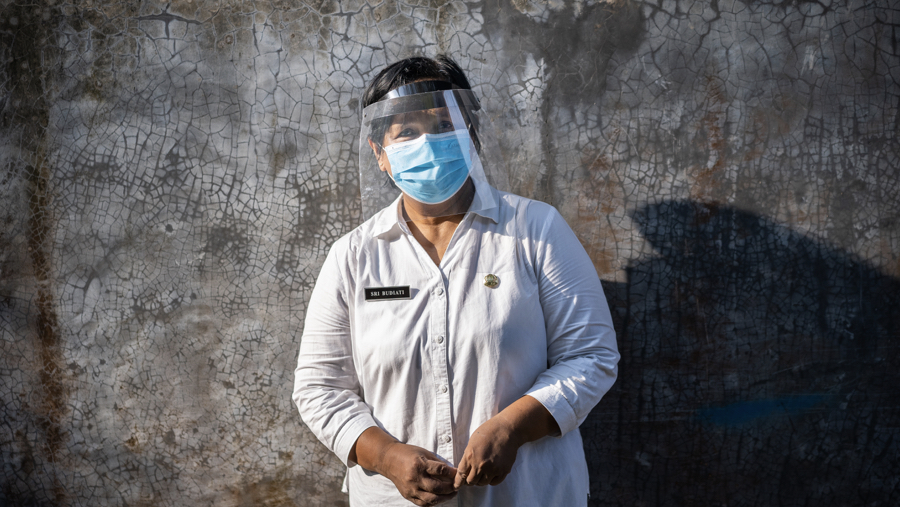
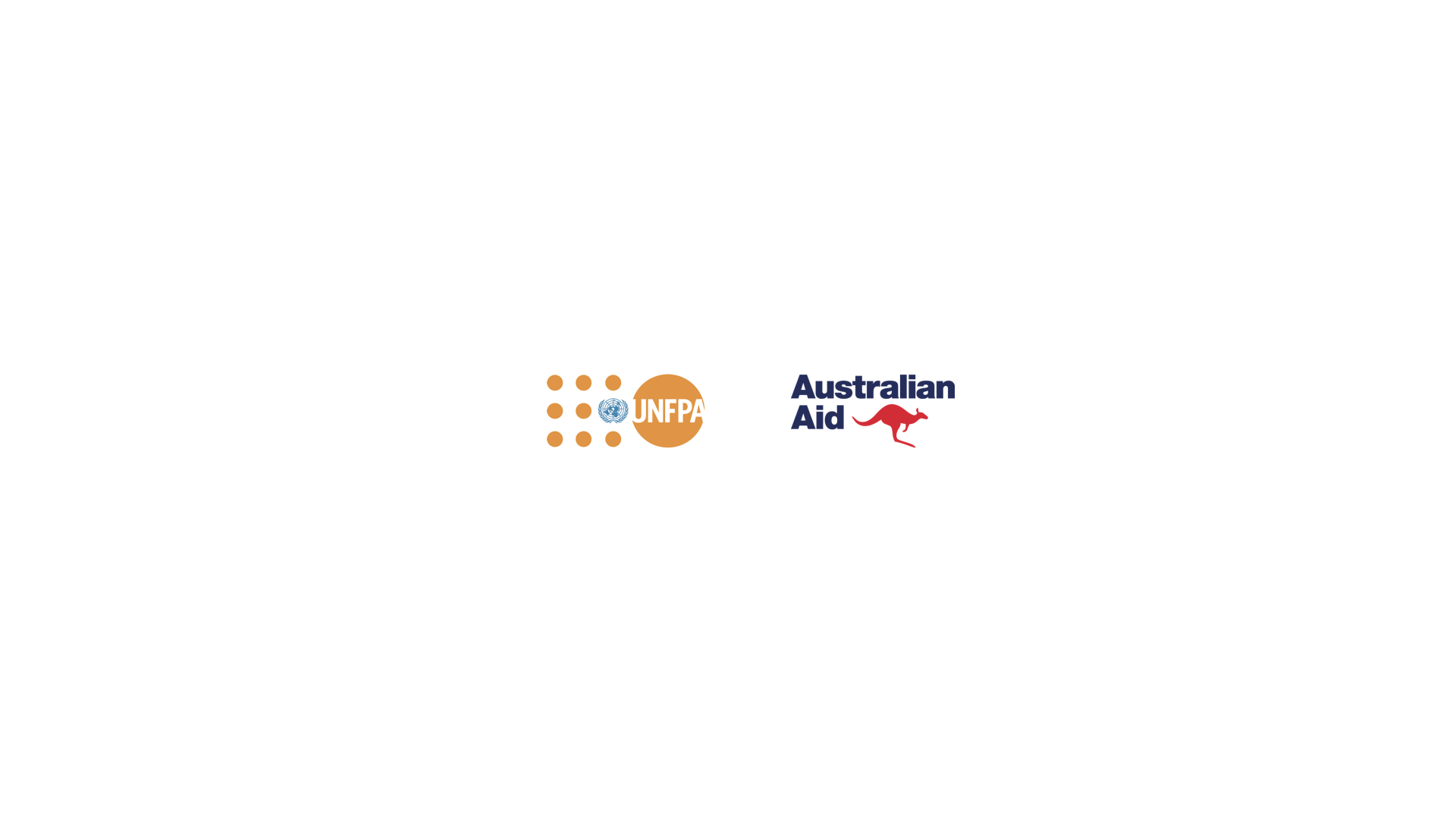
This work was made possible through funding from the Government of Australia, Department of Foreign Affairs and Trade (DFAT) in support of a regional COVID-19 project implemented by UNFPA and partners.
Learn More
https://www.unfpa.org/resources/covid-19-technical-brief-maternity-serv…
https://www.unfpa.org/press/protecting-midwives-keep-women-and-babies-s…

